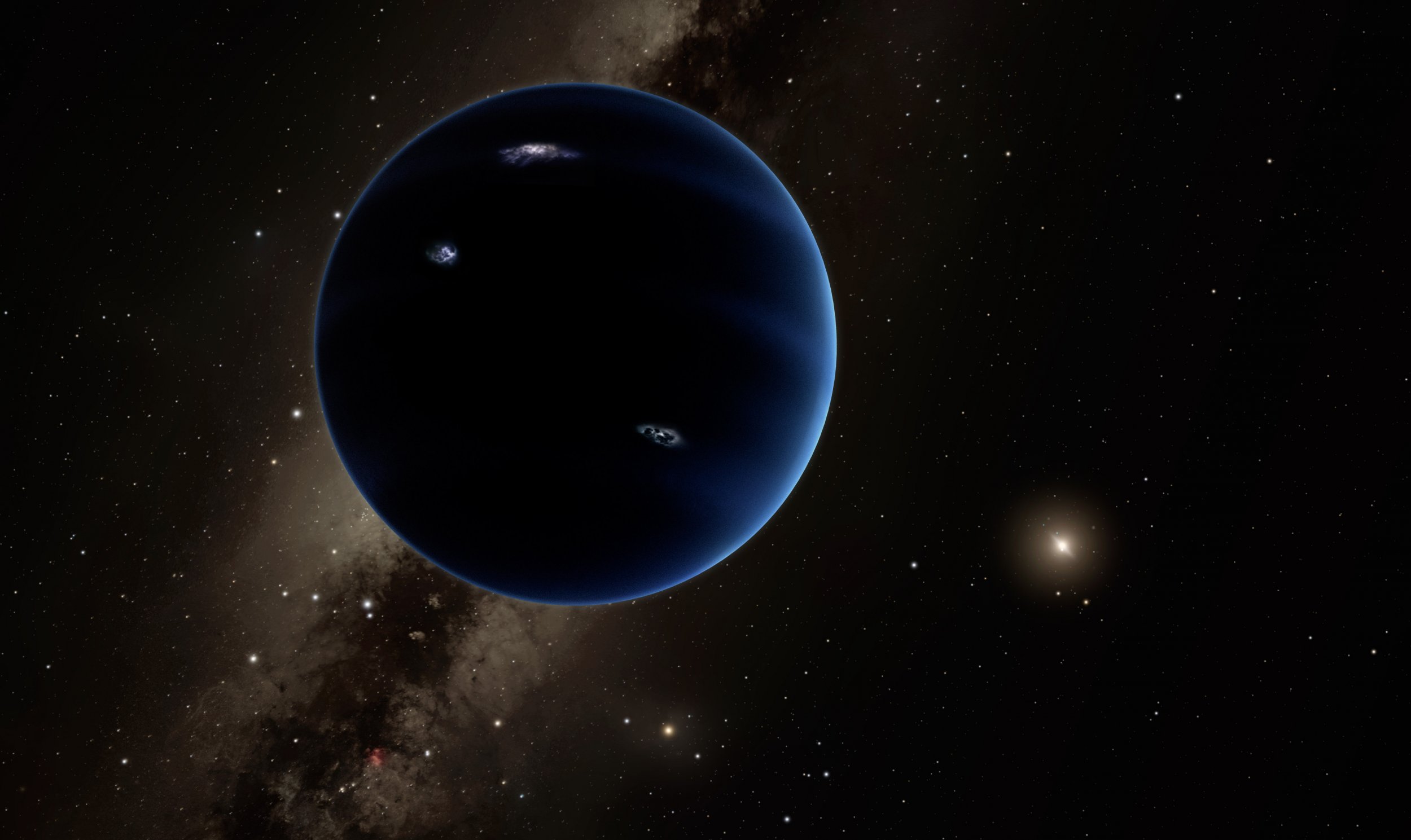
Two California astronomers have discovered evidence of a new "distant giant planet" in the solar system, according to a paper published on Wednesday.
The planet, nicknamed "Planet Nine," is believed to be five to ten times as big as Earth and nearly the size of Neptune, although the astronomers Michael Brown and Konstantin Batygin said they haven't directly observed the planet.
The planet is believed to orbit the sun every 10,000 to 20,000 years and does so at an average distance of 2.8 billion miles from the sun—20 times farther than Neptune—according to the paper, published in the Astronomical Journal. Gravitationally, the planet dominates a region of the solar system larger than that of any other planet, making it "the most planet-y of the planets in the whole solar system," Brown said in a California Institute of Technology (Caltech) press release.
Brown and Batygin, who both work at Caltech, said they discovered the potential planet by detecting a cluster of six known objects within the Kuiper belt (a region of the solar system past Neptune) with orbits that funneled toward the sun in a specific formation. The probability of that cluster being pulled into orbit by chance is a miniscule 0.007 percent, the authors said. Brown and Batygin believe the objects are being pulled into orbit by the mystery planet.
The astronomers told Science magazine that the six orbiting objects were discovered by investigating data gathered by six different telescopes, making it less likely that they were picked up at random. If Planet Nine is indeed a real planet, it would become the fifth largest behind Jupiter, Saturn, Uranus and Neptune. The planet's mass is 5,000 times that of Pluto.
The two astronomers are also famous for working to reclassify Pluto as a dwarf planet in 2006. Previously the ninth planet, Pluto was downgraded due to its size and deemed too small to be a full-sized planet. Brown's Twitter handle remains @plutokiller.
Uncommon Knowledge
Newsweek is committed to challenging conventional wisdom and finding connections in the search for common ground.
Newsweek is committed to challenging conventional wisdom and finding connections in the search for common ground.
About the writer
Before joining Newsweek, Lucy Westcott was an editorial fellow at The Wire. Previously a United Nations correspondent for the Inter ... Read more
To read how Newsweek uses AI as a newsroom tool, Click here.





